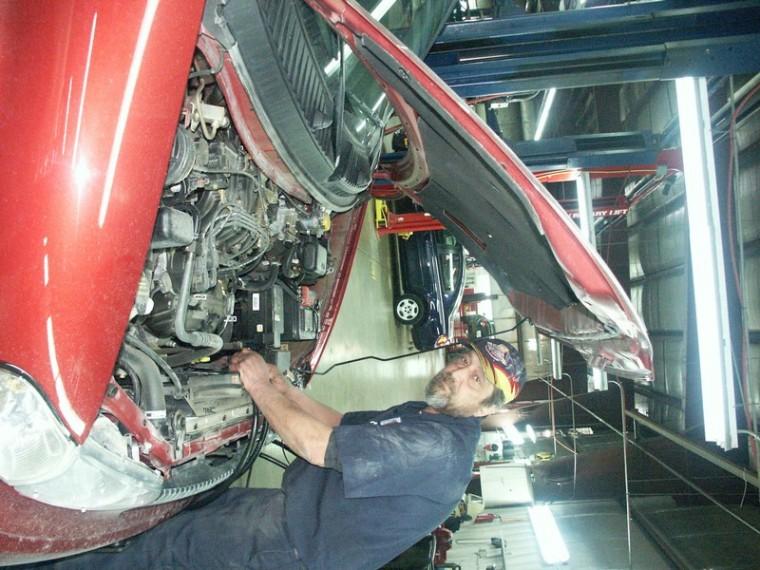Keep your car purring
February 19, 2004
No heat in your vehicle? Hearing strange noises? Can’t even getit started?
As spring break approaches, many students will be hitting theroad for home or other getaway destinations. If your car has beensitting around in the snowy, winter weather, you many want to get afew things checked over.
Getting the fluids checked and replaced in your vehicle is onething to check out.
John Morgan, a mechanic at Heartland Car Care, suggests that carowners get an oil change every 3,000 miles and have a mechanicchanges the power steering fluid, transmission fluid and coolantevery 30,000 miles or after about two years.
“The chemical components of any fluid will break down and loseefficiency,” said Morgan.
This should especially be monitored during the cold weather thathas settled in the area.
“When our fluids are cold, they don’t move and lube as well asthey do when they are warm,” said Lloyd Phillips, owner of Lloyd’sAutomotive Repair and Service. “It prematurely does damage to yourvehicle.”
Tires are another part of a vehicle that should be checkedregularly. Morgan said that tires should be rotated about every10,000 miles or every other oil change.
If the tires look a little low and look like they need some air,check the driver’s side door. There should be a sticker there thatsays the desired air pressure of the tires on that vehicle.
If the brakes have taken some abuse, have them checked outbefore taking an extended drive.
Brent Williams, a mechanic at Norris Automotive Service, saidthat break pads, on average, should be replaced every 25,000 miles,depending on how hard they are used and how much driving isdone.
Morgan said that it is a good time to check the antifreeze levelsince it is a bigger problem for vehicles in the spring and summercompared to the winter.
While winter is still lingering, there are some things driversneed to take notice of, such as that white residue on the side ofthe vehicle.
Williams said this is caused by the products that are put on theroad during bad weather. This white film can cause permanentrusting.
Various mechanics suggest that vehicles are washed off on nicesunny days. At least then it will look clean through one day ofdecent weather.
Before leaving on a road trip, students should know whereeverything is located in their vehicle. For one, know where thejack and spare tire are located.
Jacks are located in different places in each vehicle. Accordingto Morgan, drivers should not only know where this is, but alsoknow how to use it.
“If you have a flat tire, that is not the desired time to try tofigure out how it works.”





